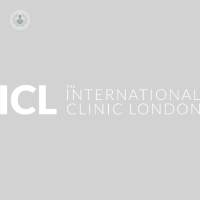Mild cognitive impairment (MCI)
Dr Daniel Ghossain - Psychology
Created on: 11-13-2012
Updated on: 09-21-2023
Edited by: Kate Forristal
What is mild cognitive impairment?
Mild cognitive impairment is a stage of ageing that is marked by memory failure and objective memory impairment. This cognitive impairment does not affect the performance of daily activities, nor does it meet the criteria for dementia. It is an age-related pathology, since it occurs in 1 in 10 people over 65 years of age. The disorder occurs to a different extent in men and women and is more common with advancing age.

Symptoms of mild cognitive impairment:
The usual symptoms of mild cognitive impairment are difficulty in acquiring new memories, without losing knowledge or forgetting your life story. In general, the symptoms are:
- Being unable to remember what you did two or three days ago
- Being unable to remember social commitments or doctor's appointments
- Frequently forgetting where you have left or stored things
- Repeating the same question more than once in the same conversation or forgetting important details that were discussed
- Mixing up or changing the order of dates or recent events
- Having less patience and being more irritable when interacting with other people
What causes mild cognitive impairment?
The clearest cause of mild cognitive impairment is age, as difficulty remembering is associated with advancing age. Other causes associated with this deterioration are genetic factors, which also play an important role in the transition from mild cognitive impairment to dementia. Cardiovascular risk factors also play a role, as cardiovascular diseases can affect cerebral blood vessels. Lifestyle habits are also important, as obesity and alcohol or substance abuse affect the brain.
Can mild cognitive impairment be prevented?
Mild cognitive impairment can be prevented by maintaining brain health. This is why it is important to maintain certain habits that ensure brain activity and keep the brain active, such as:
- Participating in social activities or activities that are new and challenging for the brain. It's also important to read on a regular basis and to find a hobby that you can do every day.
- Engaging in regular physical activity for at least 30 minutes a day to prevent brain atrophy.
- Eating a healthy diet and controlling cardiovascular risk factors.
- Getting 8 hours’ sleep every day and avoiding ongoing stress, as chronic stress directly affects the generation of new memories.
To control the evolution of the disorder, you should see your doctor at the first sign of symptoms.
How can mild cognitive impairment be treated?
There is currently no treatment for mild cognitive impairment, but evidence shows that maintaining mental and physical activity and eating a healthy diet reduces the risk of mild cognitive impairment.










